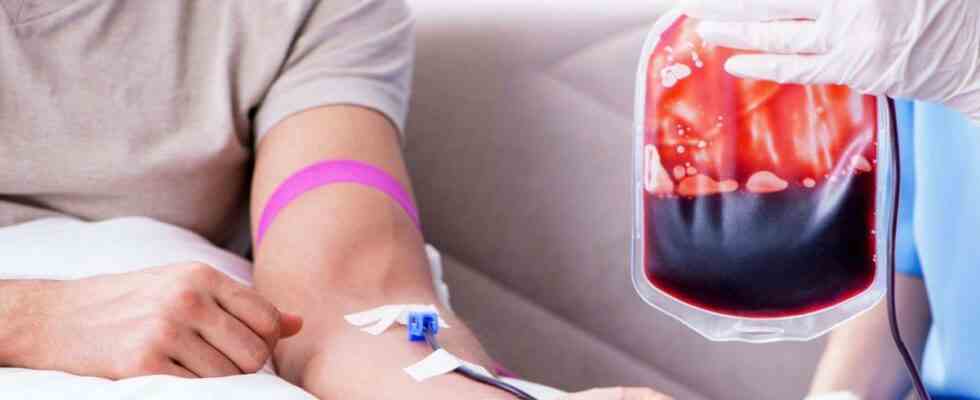Blood supplies are insufficient. As a result, the French health authorities issued a series of medical recommendations on Monday to avoid blood transfusions as much as possible. Issued by the High Authority for Health (HAS), these recommendations aim to “address the shortage of blood and the risks” linked to transfusions, explained in a joint press release several organizations that participated in their development.
In France, as in other European countries, blood supplies are regularly at an insufficient level to meet medical demands. For a year, the organization responsible for collecting blood donations, the French Blood Establishment (EFS), has repeatedly warned of the “vital” urgency to reconstitute them. This involves campaigns to encourage the French to donate blood, but also a less systematic use of transfusions, in order to save existing reserves.
Prevent anemia
Limiting transfusions has, moreover, a medical interest in itself, since this operation presents significant risks for the patient. The HAS has therefore published a series of recommendations, based on a concept developed in the medical world over the past twenty years: “patient blood management”, translated into French as “management of blood capital”.
The objective of this approach is to avoid as much as possible finding yourself in a situation where blood transfusion is unavoidable. This supposes, for example, to treat a patient before his operation so that he is not in a situation of anemia – a lack of red blood cells – at the very moment of the surgery, which would impose a transfusion.
It will take “good cooperation”
During surgery, it is a question of employing techniques which limit the bleeding of the patient as much as possible. This approach is “already widely deployed in some countries such as Australia and Germany, with positive results”, underlined the medical organizations.
However, these recommendations must now be translated into actual practices in the medical world, a challenge that professionals and patients recognize as complex. It will take “good cooperation of the various stakeholders around the patient: anesthetists-resuscitators, surgeons, haemovigilants, nurses, hospital pharmacists, EFS, biologists …”, warned the organizations.

